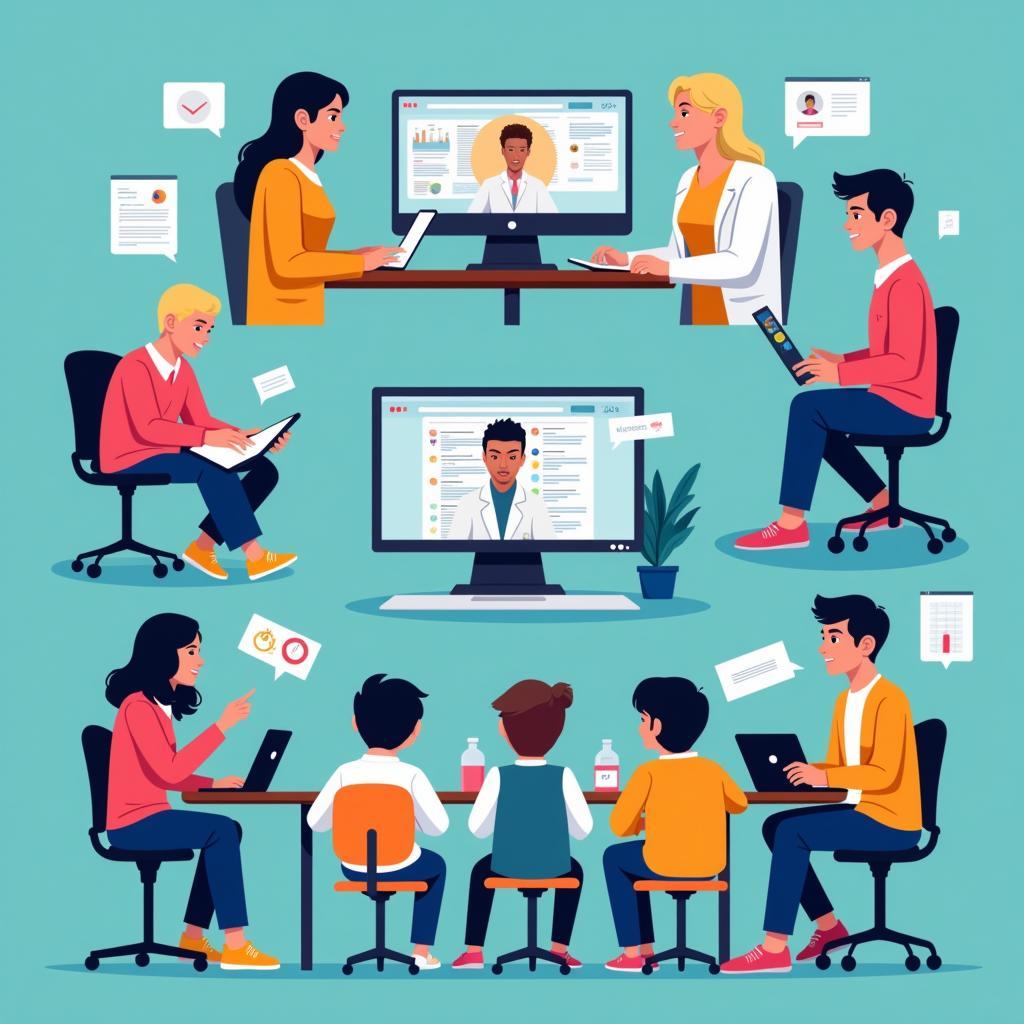“Studying and taking exams, hardship is commonplace.” But in the age of the booming Industry 4.0, this saying takes on a new meaning. Is higher education keeping up with the pace of modern life, or is it “out of sync” amidst the flow of technology? This article on HỌC LÀM will explore with you the impact of Industry 4.0 on higher education, as well as the opportunities and challenges it brings. cách đăng ký học đại học từ xa helps you access knowledge more flexibly in the digital age.
Impact of Industry 4.0 on Higher Education
Industry 4.0, with the development of artificial intelligence (AI), the Internet of Things (IoT), big data, etc., has been creating profound changes in all aspects of life, including higher education. Professor Nguyen Thi Lan Anh, author of “Education in the Digital Age,” argues: “4.0 is not just a technological revolution, but also a revolution in educational thinking.”
Opportunities
- Personalized learning: Technology allows for the design of curricula tailored to each student’s abilities and interests. Acknowledging individual strengths, 4.0 helps maximize the potential of each person.
- Easier access to knowledge: The massive repository of knowledge on the internet makes it easy for students to find information and expand their knowledge. Learning is no longer confined within the four walls of the lecture hall.
 Students collaborating on laptops, representing digital learning in the Industry 4.0 era
Students collaborating on laptops, representing digital learning in the Industry 4.0 era
Challenges
- Demand for new skills: Students need to equip themselves with new skills such as critical thinking, creativity, problem-solving, etc., to adapt to the labor market. The saying “you reap what you sow” holds true; without continuous learning and knowledge updates, we will be left behind.
- Digital divide: Not everyone has access to technology, leading to disparities in learning opportunities. This is an issue that needs to be addressed and resolved.
Future Directions of Higher Education in the Industry 4.0 Era
cách đưa danh sách học viên lên vnpt e lảning is a typical example of technology application in education management. So, what does higher education need to do to adapt to this revolution?
Innovating Teaching Methods
Lecturers need to shift from the role of “knowledge transmitters” to “facilitators and supporters of students.” Active learning models, student-centered approaches, will become increasingly popular. Dr. Pham Van Minh, a lecturer at the University of Social Sciences and Humanities, Ho Chi Minh City, shared: “Education 4.0 needs to focus on developing students’ self-learning and self-research capabilities.”
Strengthening Collaboration Between Universities and Businesses
This collaboration will provide students with opportunities for internships, real-world experiences, and equipping themselves with the necessary skills for future jobs. “Practice makes perfect”; hands-on experience will help students become more “skilled professionals.”
cách tính điểm chuẩn của các trường đại học is also gradually changing to suit the new context. phong cách học tiếng việt 2001 is also one of the important factors to be emphasized in the digital age.
Conclusion
Industry 4.0 brings both opportunities and challenges to higher education. Grasping trends and proactively innovating are key to overcoming difficulties, leveraging advantages, and training high-quality human resources to meet the needs of society. Leave a comment and share your views on this issue! Explore more useful articles on the HỌC LÀM website. Contact us immediately at phone number 0372888889 or visit us at 335 Nguyen Trai, Thanh Xuan, Hanoi. Our customer care team is always ready to support you 24/7.